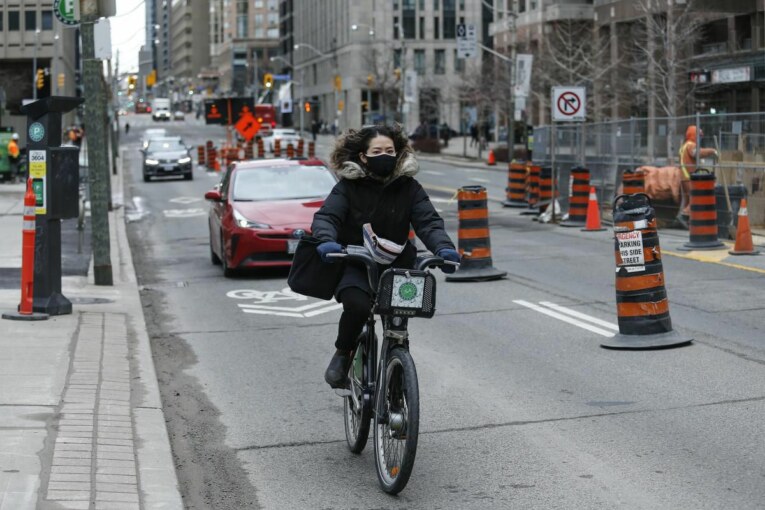
.
6:05 a.m. The U.S. Justice Department said Tuesday it will not appeal a federal district judge’s ruling that ended the nation’s federal mask mandate on public transit unless the Centers for Disease Control and Prevention believes the requirement is still necessary.
In a statement released a day after a Florida judge ended the sweeping mandate, which required face coverings on planes and trains and in transit hubs, Justice Department spokesman Anthony Coley said officials believe that the federal mask order was “a valid exercise of the authority Congress has given CDC to protect the public health.” He said it was “an important authority the Department will continue to work to preserve.”
Coley said the CDC had said it would continue to assess public health conditions, and if the agency determined a mandate was necessary for public health, the Justice Department would file an appeal.
5:35 a.m. President Joe Biden’s administration has been working for months to prepare people to rethink their personal risk calculations as the nation gets used to the idea of living with an endemic COVID-19.
But that measured approach disappeared abruptly when a federal judge on Monday threw out the federal requirement to mask up when using mass transit. The ruling added to the urgency of the messaging challenge as the administration tries to move past the virus in the lead-up to midterm elections.
After the government last month eased indoor mask-wearing guidelines for the vast majority of Americans – even in schools — masking on planes was one of the last redoubts of the national COVID-19 restrictions. Now, as the policy falls, the administration turns to accelerating its efforts to provide the best advice for millions making their own personal safety decisions in the still-dangerous pandemic.
Read more from The Associated Press.
5:20 a.m. Newfoundland and Labrador residents say they’re frustrated by the lack of free COVID-19 rapid tests when other provinces make them widely available at no cost.
Heather Elliott, a retail worker from St. John’s, says many of her friends and family are scrambling to find take-home rapid tests. PCR testing, meanwhile, is only offered to select groups, such as people over 60, pregnant people and those working in high-risk settings like health care.
“Learning to live with COVID — part of that is being able to identify if you have COVID,“ Elliott said in an interview Tuesday. ”And unfortunately, in Newfoundland and Labrador right now, a lot of the population doesn’t have that option.
Read more from The Canadian Press.
5:15 a.m. Uber Canada says face masks will no longer be required for drivers and passengers as of Friday April 22.
This change in policy does not apply to Quebec.
“In accordance with provincial public health guidelines, masks will no longer be required when using Uber in Canada (except Quebec) effective this Friday, April 22,” an Uber Canada spokesperson said in a statement Tuesday.
But the ride-sharing company says it still recommends donning a face mask.
Drivers will have the right to require passengers to wear masks and can cancel trips if the passenger refuses, according to Uber Canada. Similarly, if the passenger doesn’t wish to wear a mask, they can cancel a trip according to Uber’s usual policies.
Read more from the Star’s Lloyd Quanash.
5 a.m. Shanghai allowed 4 million more people out of their homes Wednesday as anti-virus controls that shut down China’s biggest city eased, while the International Monetary Fund cut its forecast of Chinese economic growth and warned the global flow of industrial goods might be disrupted.
A total of almost 12 million people in the city of 25 million are allowed to go outdoors following the first round of easing last week, health official Wu Ganyu said at a news conference. Wu said the virus was “under effective control” for the first time in some parts of the city.
Under the latest changes, more than 4 million people are included in areas where the status shifted from closed to controlled, said Wu. He said some are not allowed to leave their neighborhoods and large gatherings are prohibited.
You can read more of the news on source



